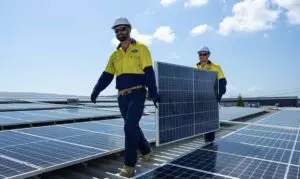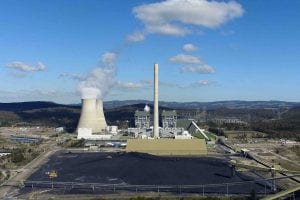
Current fossil fuel subsidies of about $500 billion per year should be phased out to help the world reduce carbon emissions causing climate change, International Energy Agency (IEA) executive director, Fatih Birol, said today at a side event at the Paris climate talks.
Australia last week refused to sign a communique, released in Paris and signed by 30 countries, calling for the phase-out of fossil fuel subsidies, after National Party MPs feared it may force the government to abandon the multi-billion dollar a year diesel fuel rebate for the mining and agriculture industries.
“By keeping prices artificially low, fossil-fuel subsidies encourage wasteful consumption, disadvantage renewable energy, and depress investment in energy efficiency,” the group’s communique states.
Mr Birol said the IEA would like to see fossil fuel subsidies phased out and that current low oil and coal prices provided “fertile ground” for this to happen. He was speaking at a side event to the climate summit, organised by the Friends of Fossil Fuel Subsidy Reform (FFFR), the group pushing for the phase out with member countries including Costa Rica, Denmark, Ethiopia, Finland, New Zealand, Norway, Sweden and Switzerland.
Even a partial phase-out of fossil-fuel subsidies would generate 12% of the total emissions reduction needed by 2020 to stay below 2°C target, according to the IEA.
The IEA estimates that subsidies to fossil-fuel are around six times the level of support to renewable energy. Currently, 15% of global CO2 emissions receive an incentive of $110 per tonne in the form of fossil-fuel subsidies while only 8% are subject to a carbon price.
Norway’s Minister of Foreign Affairs, Børge Brende, told the media conference the removal of fossil fuel subsidies would free up funds for schools, hospitals and reduce air pollution which is causing 7 million premature deaths per year, according to the World Health Organisation.
The G7 group of industrialised countries in June this year agreed to phase out fossil fuel subsidies by the end of the century. They also agreed on a global target for limiting the rise in average global temperatures to a maximum of 2°C over pre-industrial levels.
The G20 and the Asia Pacific Economic Cooperation group agreed to phase out inefficient fuel subsidies in 2009.








